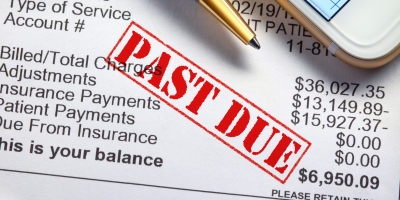After seven months of hardcore budgeting, it’s wearing on me a bit. I really want to get that credit card back out and go on shopping spree for new clothes and household items, and yet, I’m sticking to the original plan.
That doesn’t make it easy, though, which is why I think we should discuss treating your budget like a diet – because a diet isn’t easy either.
Tip: Grab my FREE 5-Day Achieving Goals Course to help you determine your specific goals. Find it HERE.
Reason #1: It Won’t Happen Overnight
Ten years ago I weighed fifty pounds more than I do now. No joke. My husband and I decided that we needed to prioritize eating better and working out. We had no money at the time, so eating better than we already did was a bit of challenge, but once we figured out portion sizes, we found we saved a lot of money and calories.
A gym membership with a pool allowed us to expend additional calories and tone muscle, which was a huge step in the right direction as far as losing weight went.
At first, it was easy (like it probably was with your budget back about January). We were excited and ready to lose the weight no matter what the cost. The sacrifice didn’t seem like much if we were going to look like those celebrities on television. So, we plugged away.
And then it got hard.
People asked us out to eat, and we’d say yes, only to regret it the next day. We’d choose to have one extra serving of dessert, only to beat ourselves up for it as we went to bed, determined to spend an additional hour at the gym the following day.
All in all, it took me six years to lose that fifty pounds. Six long years spent readjusting my diet, saying no to the things that didn’t push me in the right direction, and exercising like my life depended on it. Check out more about that journey HERE.
Your budget should be treated with the same long-term goal in mind as a diet intended on getting you to that perfect figure. Financial security, whatever you might believe that to be, will not happen overnight if you are weighed down by debt and poor choices. Rather, it’s going to take time, dedication, and a lot of self-restraint in order to meet the goal you’ve set for yourself.
Reason #2: There Will Be Cheat Days
…or weeks…
…or months…
Every diet comes with that day, or week, or month that just didn’t work out the way you planned. Perhaps you had family from out of town and spent a lot of time eating out at restaurants with no chance to get your workout in, or maybe it was the month you got mono and could barely leave the couch. Whatever the reason, you needed to take a step back from the diet and do what was best for you at the moment.
The same thing goes for a budget. There will be days, weeks, and months, in which that carefully planned budget just doesn’t work.
This month hasn’t been a great one for us when it comes to the budget. We’ve got a couple of summer vacations planned, have had an additional person around a lot of the time, and found that most of our family was in need of new (or new to us) clothing. Despite all of my careful planning, the budget had to be manipulated to cover those costs, and we were not able to pay down any additional credit card debt this month.
It’s a fact of life: things happen, and there comes a time you simply have to accept it and move on, while making a better for future months.
The key here: don’t give up. The moment you resign yourself to not being able to keep the budget is the moment the budget (and the whole financial plan you came up with back in January) will no longer work for you.
Part of not giving up comes with agreeing that you won’t see it as a failure, but a learning experience that you won’t repeat (if possible). Like any good diet, you have to figure out what works for you in order for it to have a lasting effect. If taking a break from the debt payoff plan to purchase new clothing once a year is what’s necessary to make the other eleven months of the year work, then so be it. Make your plans accordingly.
Reason #3: It Has to Be A Lifestyle Change
I really dislike fad diets.
Since I was a high schooler, struggling to fit into what I believed was the “ideal” size for a girl my age, I have seen so many fad diets come and go. My mom had a book on the SouthBeach Diet and we frequently discussed the pros and cons of the Adkins diet when it first came out. There’s been the Paleo diet, the Keto Diet, the HCG diet, and so many more that I’m not even going to try to list them all.
Are they all bad choices? No, not necessarily, but what many of them fail to convey is the fact that, if you are going to lose weight and keep that weight off, it has to be a lifestyle change.
A lifestyle change?
Like a diet, a budget is only going to work if you can sustain it long-term. Anyone can eat carrots for a month to lose ten pounds. It’s the ten years after that first month that matter, though, and no one that I know can live on carrots for the rest of their life.
A budget is much the same. While you may be able to give up that latte or dinner out for a while, eventually you will want it back and, if you haven’t trained yourself appropriately, it will quickly spiral out of control. When it comes to diet, it’s important to incorporate the things you love in moderate amounts. We call this eating in moderation. It’s the same with budgeting, you need to incorporate those things you really love into your budget in order to find long-term financial success.
Don’t get me wrong. I’m not saying you shouldn’t cut out the lattes for a period of time, or go for a no spend month. What I am saying is that, if you intend this budget to be a permanent lifestyle change, you need to treat it as such. That means, you need to make sure you are budgeting for the things you, your spouse, and your kids love to do, even if it means scaling it back for awhile until you’ve saved enough money to do so.
If you don’t account for those things you’ve loved over the years, you will end up failing in your budget (and your diet if that applies) because eventually, you will binge on them, choosing to max out a recently paid credit card or emptying a savings account. Don’t let this be you: plan ahead, incorporate as much as you possibly can into your budget and, if you have to eliminate something you love, put a timeframe on it so that you can get back to it at some designated point in the future.
So often we forget that, if we are looking to find financial security (whatever that might mean to you individually), what we do now will need to be carried into our future as a complete lifestyle change, because the moment we choose to go back to the old ways, will be the moment we lose everything we’ve worked for thus far.
The Struggle Is Real
Neither budgeting or dieting are easy tasks to undertake, and I really hope you aren’t feeling discouraged in whichever one you chose to take on this year. Recognize that you are human, failure is inevitable at times, and you can always reassess, regroup, and restart your process to achieve your goal.
Have a wonderful day!
Love,
Sarah
Tip: Grab my FREE 5-Day Achieving Goals Course to help you determine your specific goals. Find it HERE.



